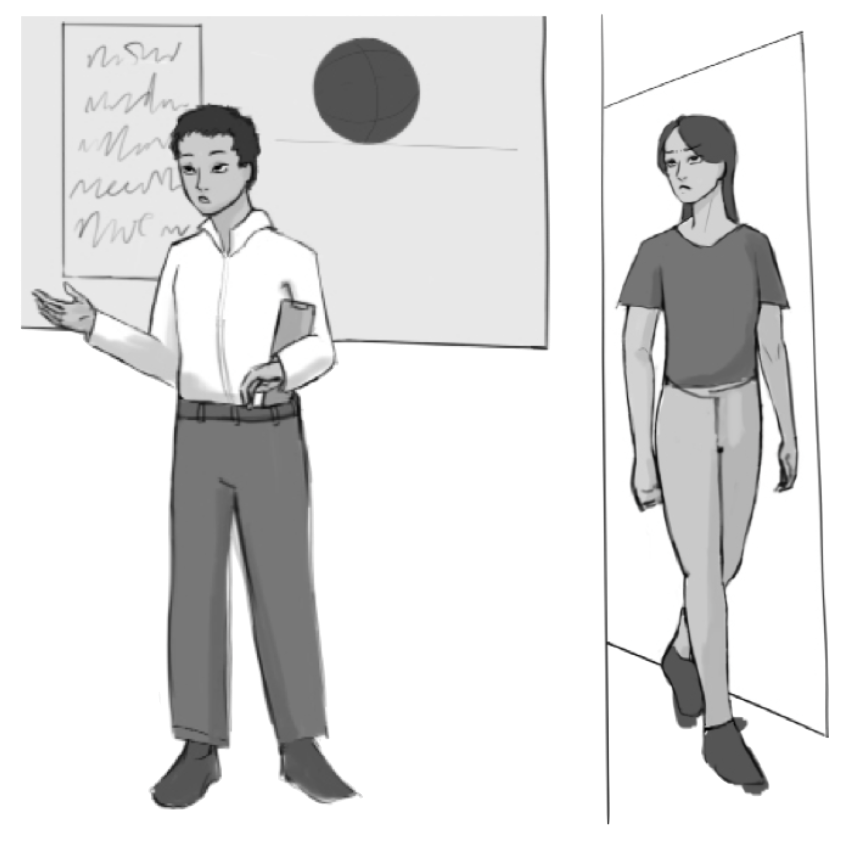Opt out, or cop-out?
June, 2024
Graphic: Ellie Kang
Through increasing social disagreement in our country, many parents have joined together in an attempt to protect their children from ideas or courses of study that they deem harmful. In order to protect their children from these ideas — whether scientific, medical, or historical — parents lobby and protest so that their children can opt out of certain lessons.
It’s easy to think of opting-out of controversial content as something that happens far away from the progressive halls of PHS. However, recently, the PPS district has had its own challenges with parental demands to opt-out. In September, Project Veritas (a conservative media organization) released an undercover video of a HiTOPS (an LGBTQ+ non-profit) employee on YouTube. In the video, the employee explained that instead of educating students about LGBTQ+ issues in an opt-outable sex-ed class, the organization had been teaching about it in mandatory Pathways to Racial Literacy classes. As a result, this January, a small group of parents held a protest at Princeton Middle School against the continued inclusion of HiTOPS in the mandatory school curriculum.
“[PPS] has had requests in the past to opt-out of [Pathways to] Racial Literacy, [a] graduation requirement, [but] per the state guidelines it’s not opt-outable,” said Kimberly Tew, Assistant Superintendent of Curriculum and Instruction.
Those who support opting out generally subscribe to the philosophy known as “parents’ rights.” This principle maintains that parents should have greater control of their child’s experience in public schools. In some cases, this may even mean outright changes to the entire curriculum. In 2023, the attorney general in Indiana passed the Parents’ Bill of Rights with the aim of changing the curriculum to ensure that it “accurately reflects the values of Indiana families.”
The justification for this is that parents know what’s good for their children better than educators. These claims should not be immediately dismissed. Parents, after all, spend a lot of time with their children and would be able to notice the emotional needs of their children. However, mental health and education are entirely different. Teachers and school administrators have spent their careers devoted to the intellectual and educational experience of young adults, whereas parents often see things only through the eyes of their own children, making teachers generally more in tune with the intellectual and social needs of students.
In addition to a justification for involvement in education, for opting-out to actually happen, parents must take issue with the school curriculum. Of course, parents are entitled to their own opinions about what is right. However, allowing a student to study something does not mean they will be forced to endorse it. In a school district as accommodating as Princeton’s, students who disagree with the perspective of the educator have a chance to voice their disagreement and express their reasoning. At PHS, students are likely to encounter a much more forgiving and understanding audience than if they were to wait to discuss their ideas until entering our intensely partisan society. In turn, students who had previously agreed with the position of the educator are introduced to another perspective — their world view expands, and they learn that the issue at hand is not one sided.
In the end, opting-out depends on a logic that is similar to censorship, as if there are certain ideas or subjects that are so dangerous that they must be deemed out of bounds entirely. But this is hardly the case; we should be exposed to all kinds of ideas — both good and bad — just like the ideas we will eventually be exposed to when we leave the safety of the classroom.
Parents, though, still have a crucial role to play in this process of education. Rather than protect their children from “dangerous” ideas, they should provide their children with the analytical tools to form their own interpretation.